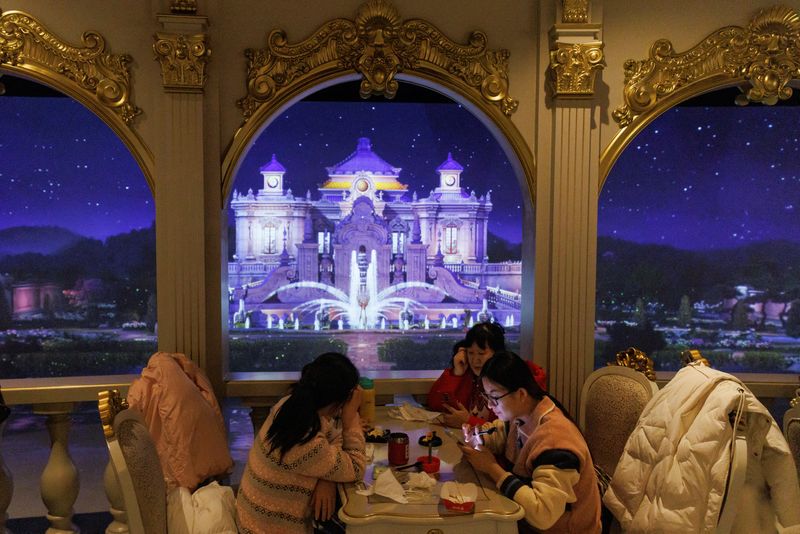BEIJING (Reuters) - China's services activity in January expanded for the first time in five months as spending and travel got a boost from the lifting of stringent COVID-19 curbs, sending business confidence to near 12-year highs, a private sector survey showed on Friday.
The Caixin/S&P Global services purchasing managers' index (PMI) rose to 52.9 in January from 48.0 in December, above the 50-point mark which indicates expansion in activity, marking an end to a four-month contraction.
The reading mirrored the results of a larger official services PMI published earlier this week, adding to evidence of a rebound in activity in the world's second-largest economy as disruptions from reopening fade.
China's abrupt dismantling of pandemic curbs and the subsequent faster-than-expected peaking of infections boosted demand for services, especially during the week-long Lunar New Year holidays, and set the stage for a faster and fuller economic recovery.
This year's celebration is the first in three years without any form of lockdown curbs. China abandoned its strict "zero-COVID" policy in early December after protests against the restrictions, allowing people to travel and the virus to spread rapidly throughout the country.
"Most ingredients in our restaurant have been sold out during Lunar New Year holidays, as we didn't expect so many customers," 33-year-old surnamed Zhang, a restaurant manager in Beijing told Reuters this week, "throughout the whole holidays, we can sell 400-600 signature dishes a day, much more than before."
"After being hit by the latest wave of COVID infections, the primary focus of economic work should be on accelerating economic recovery and promoting normalised production and social order," said Wang Zhe, senior economist at Caixin Insight Group.
The economy's reopening also boosted services exports, with the sub-index of new export orders increasing into expansionary territory in January from a contraction in December.
Last month, firms surveyed said they grappled with rising energy and raw material costs, staff reductions and an increase in the backlog of work.
However, firms were still bullish about recovery prospects for the next 12 months after the full scrapping of China's protracted zero-COVID policy, with the confidence index hitting the highest since February 2011.
"Improving expectations, restoring confidence, increasing income, expanding consumption, and stimulating domestic demand will be among the priorities," Wang said.
Caixin/S&P's composite PMI, which includes both manufacturing and services activity, rose to 51.1 in January from 48.3 the previous month, marking the first expansion in five months.

This week in a study session of the Politburo, a top decision-making body of the ruling Communist Party, Chinese President Xi Jinping telegraphed plans to revive consumption, a major challenge facing the economy.
The Caixin PMI is compiled by S&P Global (NYSE:SPGI) based on responses to questions sent to purchasing managers in China.